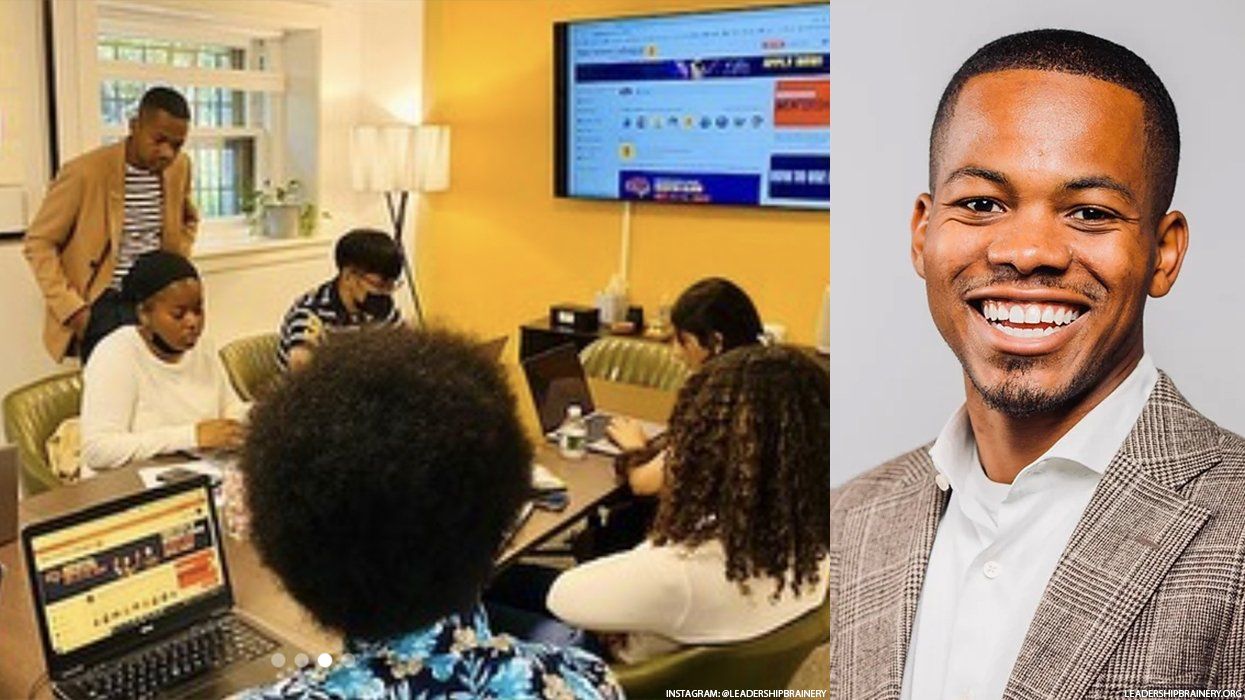Fewer Black people are getting master’s and doctoral degrees now than they did in the 1980s and 90s, says Derrick Young. His organization Leadership Brainery is looking to change that.
Leadership Brainery looks to provide resources and connections for marginalized communities to gain access to higher education, especially master’s and doctoral degrees, according to representatives from the group.
With its mission in mind, the organization strives to provide marginalized communities, especially Black and brown communities, with the resources necessary to access high-quality, advanced education that will empower them to be independent.
Derrick Young was inspired to co-found the organization due to his experience with the education system.
During his undergraduate study at Grambling State University, a historically black university in Louisiana, he and his partner, Jonathan Allen, were studious. The pair went on to pursue advanced degrees after graduating from college.
“I went to the Tufts School of Medicine for my master’s in public health and health policy,” Young tells The Advocate. “And Jonathan went over to [Boston University] Law.”
He continues, “Then, right after him, I went to BU Law.”
Young says he was the only Black man to enter his cohort at Tufts in 2015, and at Boston University School of Law, he was the only Black man entering in 2017 out of 250 students.
“So for us, we started thinking about, why aren’t there more folks of color in these competitive programs knowing that the workforce right now is demanding more leadership and more diversity and leadership roles in management.”
Young explains that they started asking the schools about the discrepancy.
“We started asking admissions and universities like, ‘Hey, you know, why aren’t there more folks of color here in these institutions?’” Young says.
After some research, Young concluded that there was a significant decrease in the number of Black students enrolling at the graduate level now compared to then.
According to the Council of Graduate Schools, Black students represent less than 12 percent of incoming master’s and doctoral students at leading competitive universities.
In light of this, Leadership Brainery was born.
As Young explains, financial aid and lack of funding are the significant barriers that marginalized communities face when entering graduate schools.
“We have a Pell grant for undergrad, but if you’re low income and you want to go to graduate school, it’s really only based on any scholarships you receive, any type of financial aid that the university wants to provide, or any money that you’re coming out of pocket,” he says.
In addition to the Ambassador Fellowship program, Leadership Brainery offers several programs to help students become competitive applicants to colleges, including an admissions coaching program, a $10,000 scholarship, and personal development courses to help them gain the necessary skills to become competitive applicants.
He says Leadership Brainery programs teach students to stand up for themselves in negotiations.
“Many folks don’t realize that you can negotiate a financial aid package,” he says.
He says that it’s totally fine to pit one offer against another.
“One [school] gave you $40,000 or $50,000, and it may not be your top choice, so now it’s time for you to go back to that school and say, hey, Boston University offered me $40,000. You only offered me 20. Can you meet that, and do you have any other need-based funds?”
He says being direct is essential “because just like a job, the university is going to give you the bare minimum that they want to award you at that moment.”
“Our students learn that they need to advocate for themselves, and oftentimes when our students do that, they end up with more financial aid,” he says.
Due to the inequity in higher education, he contends that underrepresented communities need more funding and university resources to succeed in higher education.
In Young’s view, individuals can't be afraid to take a chance on themselves and not overlook opportunities that may come their way.
Higher education is a wise investment since it provides long-term gains by allowing career mobility and enabling career advancement, Young says, but he also notes that college might only be for some and that technical school programs may be more appropriate for certain people.
He emphasizes, though, that advanced education is essential for people who want to get into most management or other leadership positions.
“Let’s unlearn some of the things we’ve been taught all our lives: That we don’t deserve to be in certain places. But we do deserve to be here. We deserve to be at the highest levels of education,” Young says.
“Yes, it may be uncomfortable for a while as we get into the institutions, and we may be one of the few, but if we really care about uplifting our communities,” he says, “then let’s take a chance on ourselves, get into these academic institutions, hold them accountable, and then we’ll get more management and leadership roles in the workforce.”





































































Charlie Kirk DID say stoning gay people was the 'perfect law' — and these other heinous quotes